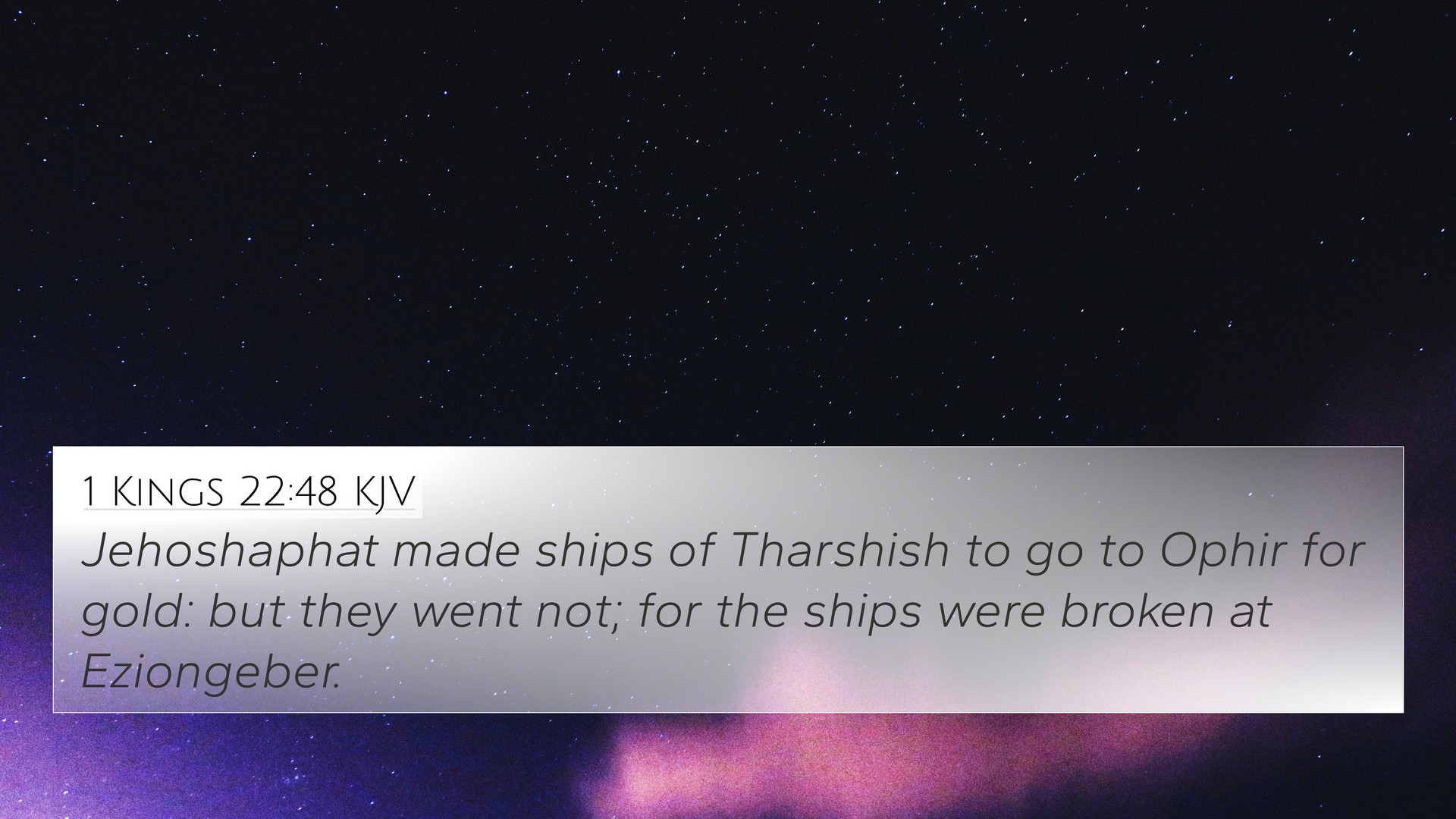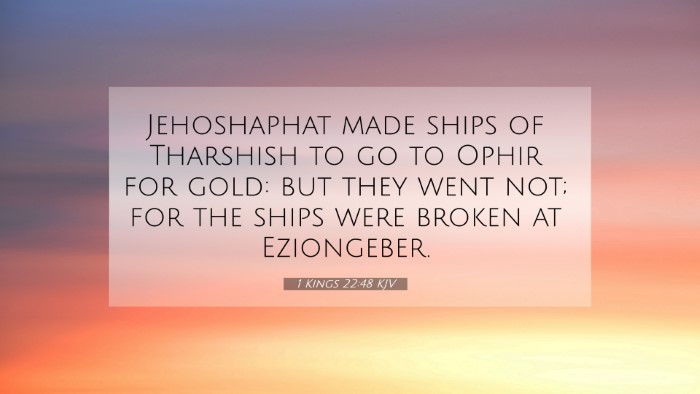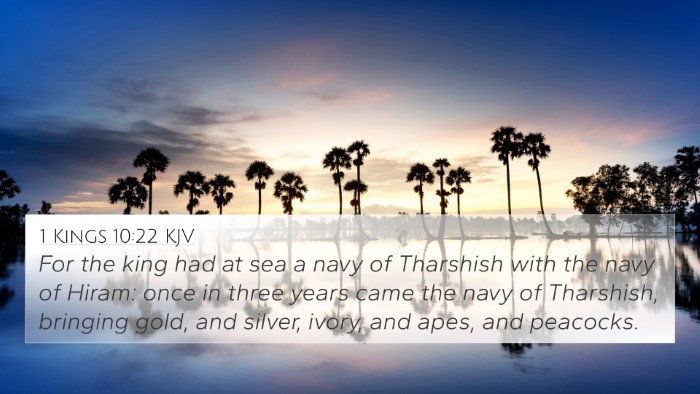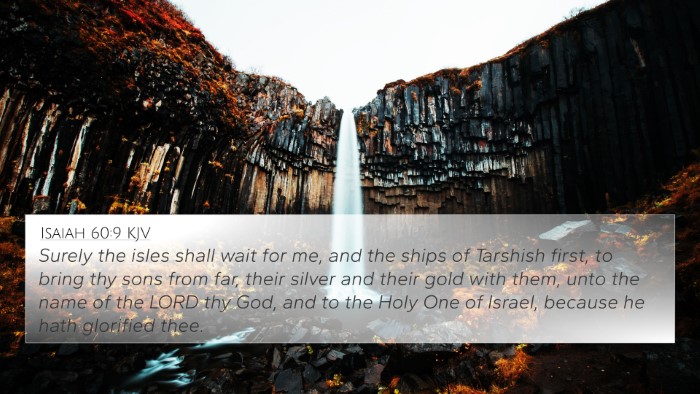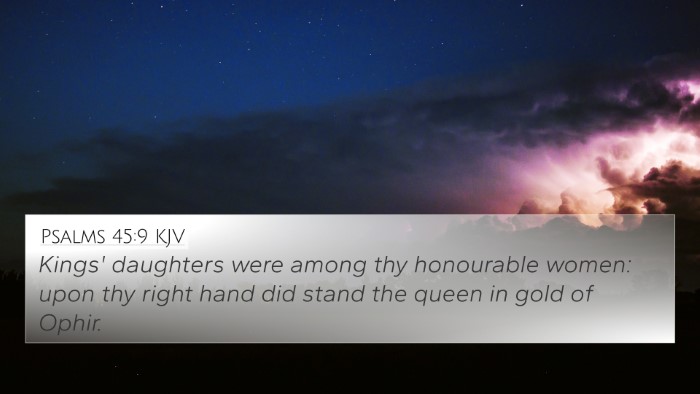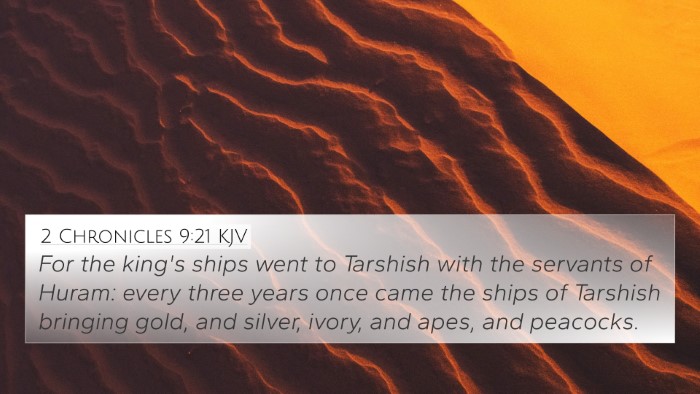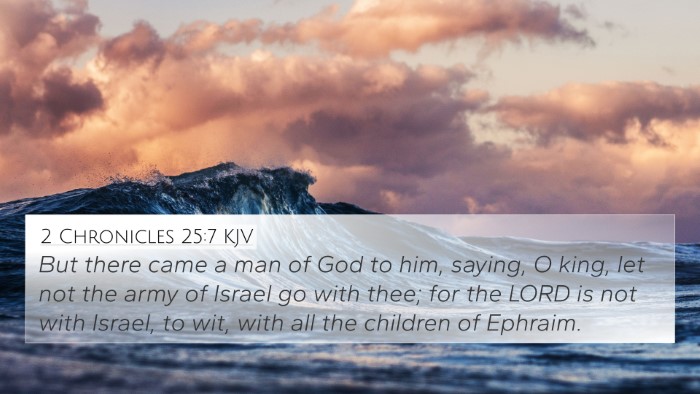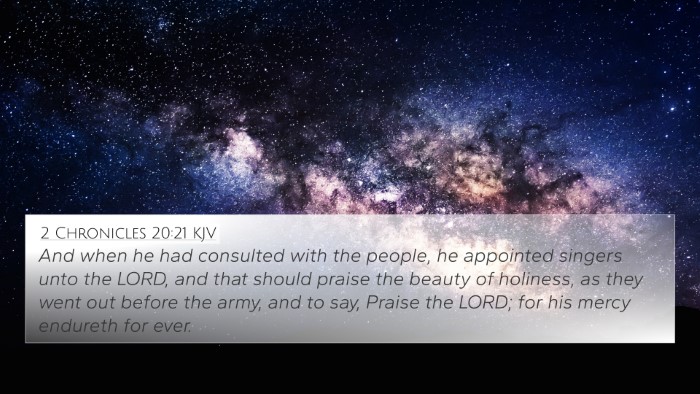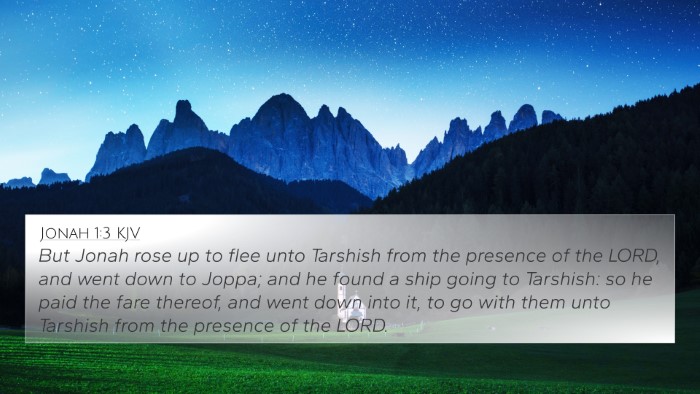Bible Verse Meaning of 1 Kings 22:48
This passage, found in 1 Kings 22:48, discusses the actions and the reign of King Jehoshaphat of Judah, particularly regarding his naval ventures aimed at trading with Tarshish. The verse states:
“And Jehoshaphat made ships of Tarshish to go to Ophir for gold: but they went not; for the ships were broken at Eziongeber.”
The commentary on this verse reveals significant lessons and insights, drawn from esteemed public domain sources like those of Matthew Henry, Albert Barnes, and Adam Clarke.
Commentary Insights
Jehoshaphat's Ventures:
- Matthew Henry: Highlights that Jehoshaphat's desire to build a fleet signified an ambition for trade and prosperity. However, Henry warns that this ambition should be pursued with a sense of reliance on God, emphasizing that even good intentions can fail without divine approval.
- Albert Barnes: Notes that the intention of acquiring gold from Ophir was noble, yet he points out that the failure of the ships at Eziongeber serves as a divine intervention. Barnes emphasizes that the Lord does not support ventures that stray from His will.
- Adam Clarke: Explains that the reference to “ships of Tarshish” indicates a point of trade with great wealth. Clarke interprets the failure of the ships as a sign of God's disfavor, reiterating the importance of aligning endeavors with God’s will.
Thematic Connections
This verse opens doors for thematic exploration and connections between various scriptures. The following themes and their occurrences across the scriptures could be examined:
- Divine Disfavor due to Disobedience: Similar to 1 Samuel 15:23, which discusses the consequences of rebellion against God's Word.
- Faith versus Human Endeavor: This theme resonates with Proverbs 16:9, which emphasizes that while a man plans his ways, it is the Lord who governs his steps.
- Importance of Seeking God’s Guidance: Connects well with James 1:5, where it instructs believers to ask God for wisdom.
- The Futility of Plans Without God: Similarly, Psalms 127:1 reflects that unless the Lord builds the house, the labor is in vain.
- Consequences of Idolatry: This can be linked to Isaiah 31:1, which discusses the futility of seeking help from Egypt instead of the Lord.
- Merchant Activities in the Scriptures: Relates to Matthew 13:46, which discusses the merchant seeking fine pearls, indicating the pursuit of treasures.
- Divine Protection over Endeavors: This theme is prominent in Philippians 4:19, where God provides for all needs according to His riches.
Inter-Biblical Dialogue
The dialogue between the Old Testament and New Testament over similar themes is an enriching study. Some notable connections include:
- Faithfulness despite Failure: Comparison to Lamentations 3:22-23, focusing on God’s unchanging mercy amidst failure.
- Trusting God over Riches: Connects with Matthew 6:19-21 about storing treasures in heaven instead of earthly riches.
- The Call for Righteousness and Justice: A parallel can be drawn with Luke 11:42, emphasizing the weightier matters of the law.
- Seeking God's Kingdom: Refers back to Matthew 6:33, where seeking God’s kingdom takes precedence over material pursuits.
Conclusion: Lessons from 1 Kings 22:48
The verse serves as a stern reminder regarding the importance of seeking God's will in all pursuits and about the alignment of ambitions under divine oversight. The failure of Jehoshaphat's ships illustrates how even the strongest plans fall apart when they are not grounded in reliance on God.
Studying this verse and its numerous cross-references aids in understanding biblical principles more deeply and reveals ongoing themes throughout the scripture. Through these connections, believers are reminded of God’s sovereignty and the importance of aligning their endeavors with His purpose.
Tools for Bible Cross-Referencing
For those interested in exploring these connections further, various tools for Bible cross-referencing, including:
- Bible concordance: A comprehensive tool to find themes and related verses.
- Bible cross-reference guide: A methodical approach to find analogous scriptures.
- Cross-reference Bible study: An effective way to study scriptures in relation to each other.
- Bible reference resources: Helpful for identifying connections between texts.
